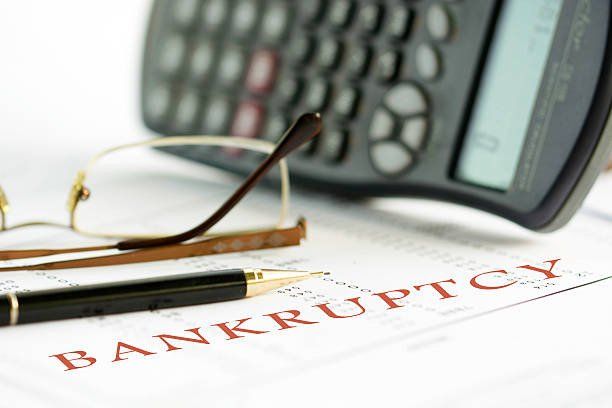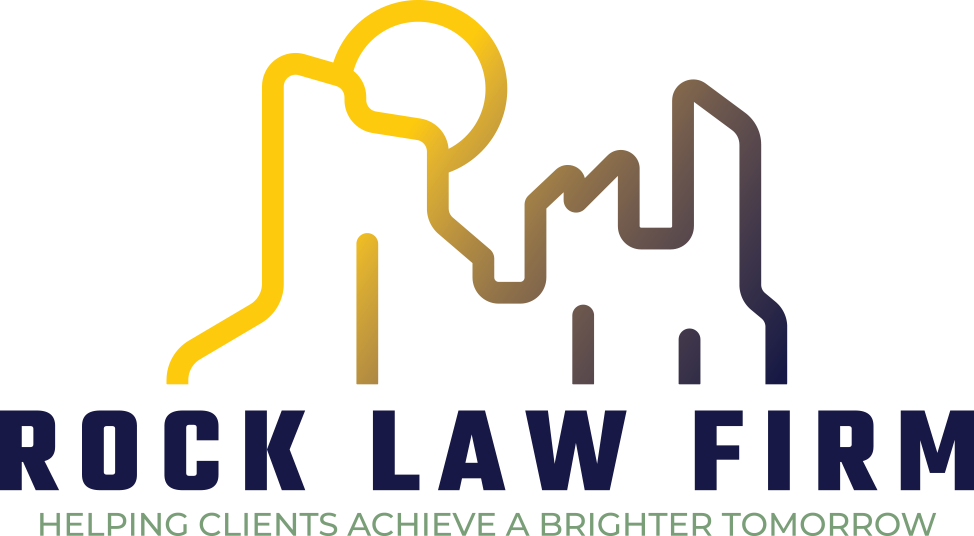
Why Do You Need To Consider a Bankruptcy Law in Arizona?
Rock Law Firm
Bankruptcy law can be complicated and difficult to understand, but it is critical to understand why it is necessary and the opportunities it provides to those seeking debt relief.
Bankruptcy law is a legal process that allows individuals and businesses to restructure their financial obligations and move on with their lives. It is a powerful tool that can assist individuals and businesses in getting back on their feet, eradicating debt, and even saving their homes from foreclosure.
However, before considering bankruptcy as an option, it is critical to understand the process, the benefits, and the drawbacks of Arizona bankruptcy laws. Knowing what to expect and the potential consequences can help you make the best financial decision. Here are some reasons why you may want to consider filing for bankruptcy:
What Is Bankruptcy?
Filing bankruptcy is a legal process that allows you to get rid of your debts and start over. It can help you save personal property, stop wage garnishment and even keep certain types of lawsuits at bay. The procedure can assist you in eliminating credit card debt, medical bills, and other unsecured obligations, allowing you to start over with a clean financial slate.
Keep in mind that bankruptcy laws differ from state to state, so if you file for bankruptcy in Arizona, you will need the assistance of a bankruptcy attorney.
Understanding the Two Kinds of Bankruptcy: Chapter 7 and Chapter 13
Individuals or businesses who have no assets they want to keep but are unable to pay their debts under current conditions file for Chapter 7 bankruptcy. These individuals may have lost their jobs or experienced medical issues that prevent them from working long enough to pay off their creditors.
This type of filing requires only three steps:
Filing an application with the bankruptcy courts.
Having an Arizona bankruptcy court hearing where the judge confirms that your circumstances meet the requirements for filing
Submitting all required documents (bank statements, tax returns) necessary for approval of dischargeable debts (such as credit card debt)
All non-dischargeable debts must still be paid in full, either through repayment plans established by creditors or through payments made directly from future earnings.
How Can Chapter 13 Bankruptcy Help Me?
Chapter 13 bankruptcy allows individuals with regular income to restructure their debts so that they can repay them over time through a repayment plan.
In most cases, unsecured debts such as credit cards, medical bills, personal loans, and utility bills are repaid within three to five years. If you have secured debt, such as a mortgage or car loan, those secured debts will be paid off in full by the end of the plan. Additional debts may be included in your repayment plan if your creditors are convinced that doing so will maximize their return on investment (ROI).
Furthermore, shortly after filing for bankruptcy, you will be required to complete credit counseling in the form of a debtor education course. The course can assist you in much more effectively planning your finances.
How Can You Benefit From Filing for Bankruptcy?
If you're considering declaring bankruptcy, you should know that there are numerous advantages to doing so. This process not only protects your assets and allows you to start over with a clean financial slate, but it also allows you to rest easy knowing that your creditors cannot harass or pressure you into paying them back. If you're thinking about filing for bankruptcy, here are some reasons why you should:
Bankruptcy Can Eliminate Unsecured Debt
Unsecured debt is defined as any debt that is not secured by collateral, such as a home or a car. Credit card balances and student loans are two examples. If you have unsecured debt and are unable to repay it, filing for bankruptcy can help relieve financial stress.
Bankruptcy Can Stop Wage Garnishment
If you are having difficulty repaying your debts, creditors may attempt to garnish your wages or other sources of income in order to collect. However, depending on Arizona bankruptcy exemptions, if you file for Chapter 7 bankruptcy and pass the means test, you may qualify for an exemption from wage garnishment under state law.
The same is true when a creditor files a motion to obtain a judgment against you (a judgment lien); this prevents them from seizing any of your property until the bankruptcy case is completed and discharged.
You Can Save Your Home
If you owe more than the value of your home and want to keep it, bankruptcy may be an option. You may be able to restructure your mortgage to make payments more affordable or change terms such as interest rates and loan term length.
The best way for homeowners to find out if this option is right for them is to speak with an experienced attorney who can assess their specific situation and advise them on how to proceed.
You Can Protect Other Assets
Bankruptcy law allows you to keep some of your assets safe from creditors. This includes cash on hand, retirement accounts, business tools and equipment, and insurance policies.
Before filing for bankruptcy, you should consult with an attorney to determine which items are protected under federal bankruptcy law. Each state has slightly different rules regarding what can be covered during a bankruptcy proceeding.
Let Rock Law Firm Help You File for Bankruptcy
If you are drowning in debt and unable to repay it, filing for bankruptcy with the assistance of an Arizona bankruptcy lawyer may be the best option for you. Rock Law Firm specializes in bankruptcy law and can assist you in understanding your options for how bankruptcy will affect your future finances. We are familiar with Arizona bankruptcy laws and can serve as your bankruptcy trustee if you wish to file bankruptcy.
We will also protect your rights throughout the process and assist you in distinguishing between exempt and nonexempt property. Rest assured that we are well-versed in all aspects of bankruptcy, including federal exemptions, dischargeable debt, and more. Call us today at (480) 613-9690 to speak to an experienced bankruptcy attorney from our team today!
